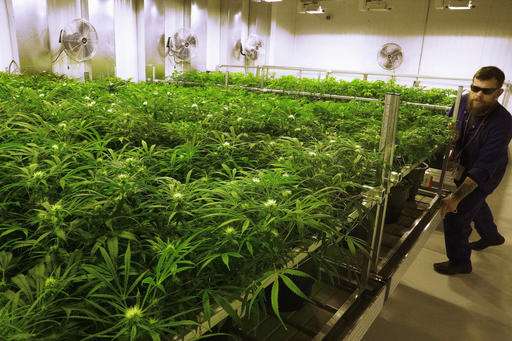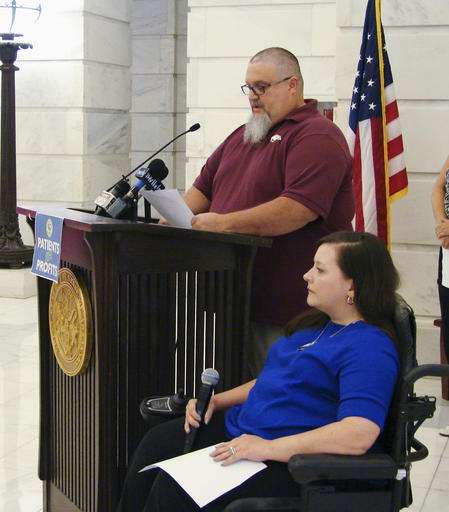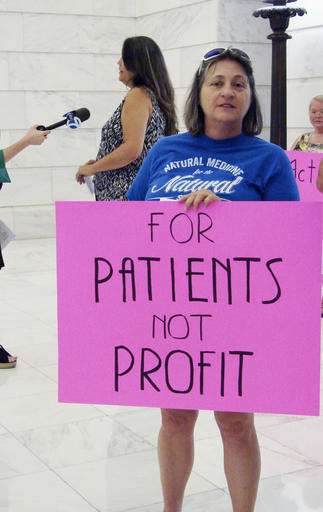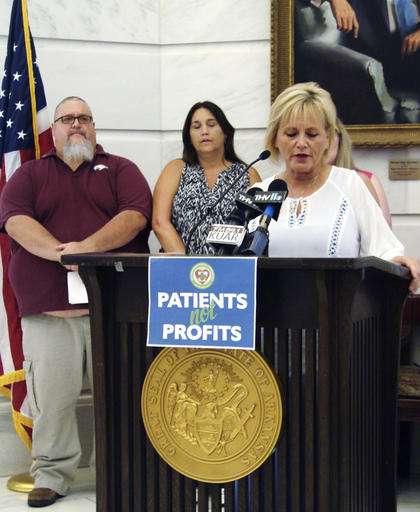Arkansas ballot will offer a new test for medical marijuana

Republicans control all of Arkansas' statewide offices, hold a majority in both chambers of the Legislature and are nearly assured of winning the state's six electoral votes in the presidential election.
But this deeply red state could be on the verge of an unusually liberal move: legalizing marijuana for people who suffer from a host of medical ailments. The fall ballot will feature two marijuana measures, and pro-pot advocates view them as an important opportunity to show that there is broad support for legalization even in conservative parts of the country, particularly the South.
The referendums also offer a chance at a symbolically powerful victory in a state with a Republican governor who once led the federal Drug Enforcement Administration.
"If a red conservative state like Arkansas in the Bible Belt can pass medical cannabis, then anybody can," said Melissa Fults, who leads the campaign for one of the medical marijuana proposals going before voters. "People are depending on us. We can't let them down."
Arkansas voters narrowly rejected a medical marijuana proposal four years ago, despite national groups spending big in favor of legalization. Meanwhile, national support for medical marijuana has grown, and half of the states and the District of Columbia have legalized the drug in some fashion.
But pot remains mostly illegal across the South.

The fall campaign is "going to be a little tougher battle, but I think everyone's views on medical marijuana are like their views on gay marriage," said David Couch, the sponsor of a competing medical marijuana measure. "They've softened over the past couple years."
Attitudes about marijuana have eased in Arkansas, where voters in two cities approved ballot initiatives that encouraged police to regard arrests for small amounts as a low priority.
Advocates hope the support for medical cannabis will cross party lines, and they are counting on voters like Barb Soell, a 77-year-old retiree who expects to support Republican Donald Trump for president.
Soell, who backed the legalization measure four years ago, said she doesn't see any need to deny the drug to people suffering from cancer and other medical problems.
"I don't think that medical marijuana is going to lead someone to use heroin or other drugs," Soell said. "That's nonsense."
Both measures on the ballot would allow patients with certain conditions to buy from dispensaries, but the proposals have different restrictions and enforcement provisions. For example, Fults' plan would allow patients who don't live near a dispensary to grow their own marijuana. Couch's initiative would not.

So far, support for medical marijuana among the states has not translated into much progress at the federal level. The Obama administration in August decided to keep marijuana on the list of most dangerous drugs but also planned to allow more research into its medical uses. Winning approval for medical cannabis in a state such as Arkansas could help elevate the drug to a federal issue.
"At some point, there's going to have to be change on the federal level to ensure that federal law and state law work together," said Tamar Todd, director of legal affairs for the Drug Policy Alliance, which is backing Fults' proposal. "Certainly adding Southern states and Southern constituencies to the push to change laws at the federal level will be very significant."
The path to legalization still faces plenty of obstacles in Arkansas. Advocates fear having two measures on the ballot will doom legalization efforts, with the campaigns battling each other as much as opponents. If voters approve both proposals, whichever one gets the most votes becomes law.
A coalition of the state's most powerful lobbying forces, including the Arkansas Farm Bureau, the state Chamber of Commerce and social conservative groups have united to campaign against the measures and have sued to block votes for both of them.
Gov. Asa Hutchinson, who ran the DEA during President George W. Bush's first term, has stepped up his criticism, warning that legalization would be a burden on resources.
"I do not see any tax boon to the state. I see more of a tax drain to the state," Hutchinson told county officials from around the state at a recent meeting.

Hutchinson and other opponents are trying to focus the debate on specific parts of the proposals that could carry unintended consequences, rather than framing it as a general fight over medical marijuana. Business groups, for example, argue that the proposals would affect efforts to enforce drug-free workplace policies.
"You might have the best intentions in the world, but what's happening is there's going to be a lot of people who suffer because of these not well thought-out policies nationally," said state Surgeon General Greg Bledsoe, a spokesman for the group campaigning against the measures.
The state Democratic Party's platform includes general support for legalizing medical marijuana, but the platform is silent on the two ballot measures.
The state's Democratic nominee for the U.S. Senate, a former federal prosecutor, has likewise said he supports developing a "responsible" medical marijuana program nationally and in Arkansas but isn't weighing in on the specific proposals.
The pro-marijuana campaigns say even general endorsements help. But they are relying more on testimonials from sick people who have used cannabis, such as Raven Thompson of Little Rock, who battled a rare sarcoma.
Thompson, who has been in remission for the past two years, said marijuana helped restore her appetite during chemotherapy and after surgery.
"I wasn't blatantly breaking the law," Thompson said. "I had to do what I had to do."
© 2016 The Associated Press. All rights reserved.
















